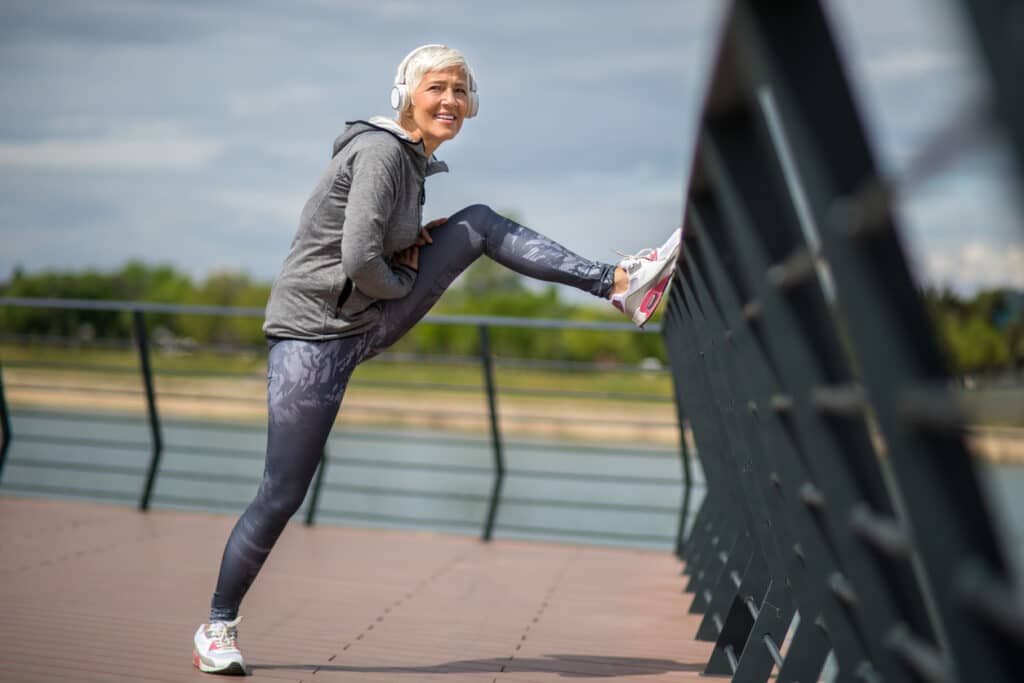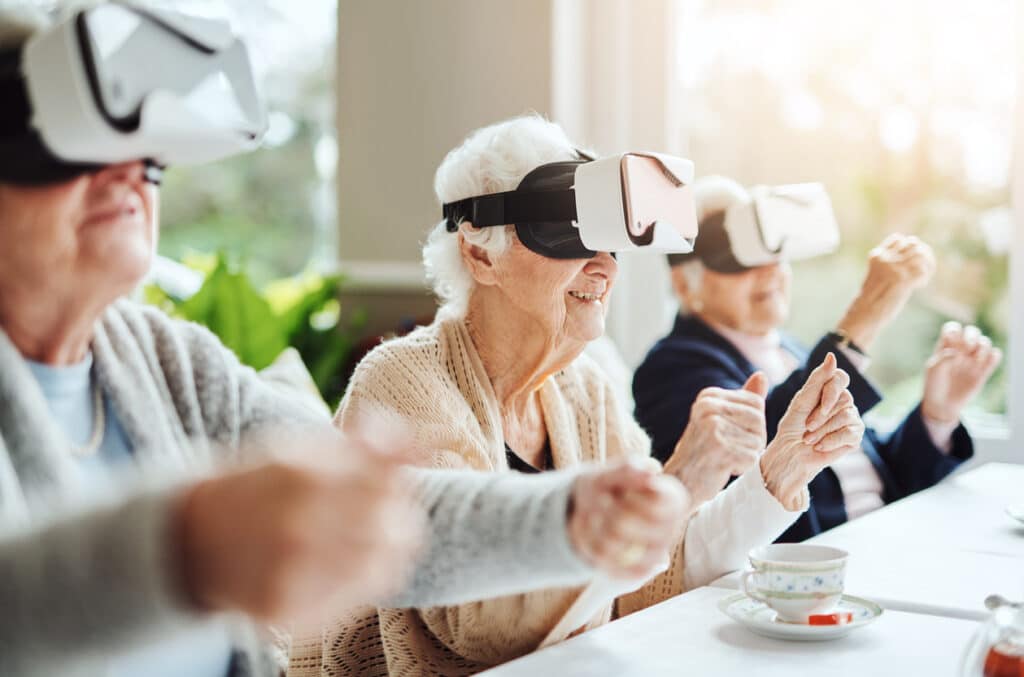
I am not young. Yet I’m not old either. I don’t feel old. And yet many of my same-age peers do. I do, however, feel the impact that society has on people over the age of 50. On the habits we’ve developed, in particular.
Aging is a natural, inevitable process. There are many society-driven misconceptions that can negatively impact our habits and our perception of, and interactions with, older adults and ourselves. Whether we notice it or not.
As we age, societal influences can detrimentally shape our habits. Negative stereotypes based on age can lead to lowered self-esteem and reduced confidence. The internalization of these stereotypes can result in habits that align with lowered expectations. Here are 4 such habits, how they can make you feel older and what you can do about each of them.
Reduced Physical Activity
While many older people may become less active due to health issues, many more do so because of a more sedentary lifestyle. Usually, it’s one that has evolved over a long period of time. And one that’s expected of us as well.
Fun Fact: Your metabolism slows down more from inactivity than natural aging.
Physical activity helps maintain muscle mass, joint flexibility, and cardiovascular health. When we are less active, we may experience decreased energy levels, reduced mobility, and a greater sense of fatigue, all of which are often associated with aging. All of which can contribute to feeling older.
What to do about it? To begin with, recognize what’s holding you back from being more active on a regular basis. You owe it to yourself to be honest. If you can do something about it, then it’s not aging, it’s you. You can take steps to move forward with a different mindset, one that will help you feel younger instead of older.
For instance:
- Start with small, achievable goals for daily movement. Walk around the block, or a mile.
- Participate in activities you enjoy, like walking, dancing, or gardening. Move more.
- Consider joining an online or in person group exercise class
- Find a workout buddy for motivation.
- Consult with your physician or a trained fitness instructor if you need help.
- Add things to your life, relaxing hobbies that keep you moving but also bring peace of mind.

Understand that at first you might actually feel more tired. This is only because your body isn’t used to moving quite so much. It will adjust. Give yourself time to rest and adapt, go at your own pace and keep trying.
Resistance to Technology
Some people may not be as comfortable with or interested in using new technologies, for a variety of reasons. Perhaps it’s because the words are getting smaller and harder to see. Perhaps it’s because things don’t seem as straightforward as they used to be. Or maybe it goes too fast, and you struggle to keep up. Frustrating, I know.
Whatever the reason, shunning new tech can create a sense of being disconnected from the modern world. It’s that disconnect you want to avoid as much as possible, no matter how comfortable it seems. Studies have shown that the more isolated you are, the higher your risk of dementia. If you’re in this habit, and do come across tech you’re unfamiliar with, you automatically feel a sense of frustration. And age.
Embracing technology is a mindset that allows you to connect with others, access information, and engage in modern activities. Being open to it doesn’t mean you have to integrate it into your lifestyle. It just means you’re open to the idea of trying new things.
What to do about it? If all this sounds familiar to you, recognize and admit that maybe you could improve on this end. I know I can. It’s a struggle not just for all the reasons listed above but also because I’m quite comfortable in my own little world. It’s a habit I’ve gotten into and one I might always work toward getting away from. And that’s okay.
The great news is that it’s not that hard, you can take tiny steps in whatever direction you want, and it actually does feel good to connect through technology.
- Start with basic technology use and gradually explore more advanced tools. Do you have a smart phone? Have you used Bluetooth for anything? What about streaming your movies the modern way?
- Enlist the help of friends or family members to guide you through technology adoption.
- Focus on the benefits of technology, such as staying connected and accessing information easily.

Many older adults have embraced technology and have become experts in using it. What’s more, many have found that technology can play a vital role in enhancing quality of life, facilitating communication, providing access to information, and enabling independence.
The next time you’re faced with a technological struggle, embrace it! Look at it as an opportunity. If at all possible, take your time, enlist help if you need it, understand it, then decide if you want it to be part of your life.
Negative Self-Talk
Engaging in negative self-talk and focusing on limitations rather than possibilities can contribute to a mindset that reinforces feelings of being older. We all do this from time to time, but some of us do this all the time. It’s a bad habit any way you look at it, and one that takes a little work to break.
To counter the impact of negative self-talk, it’s important to practice self-compassion, challenge negative thoughts with evidence-based reasoning, and seek support from friends, family, or mental health professionals.
Developing a positive and compassionate internal dialogue can not only improve your emotional well-being but also contribute to a more youthful outlook on life. Here are a few things you can do:
- Practice self-awareness and catch yourself when engaging in negative self-talk.
- Replace negative thoughts with positive affirmations and self-compassionate statements.
- Surround yourself with supportive and uplifting people.

Participating in negative self-talk and fixating on limitations instead of opportunities can foster a mentality that strengthens the perception of aging. While occasional engagement in such behavior is common, some people make it a constant practice.
Regardless of the angle from which you consider it, this is an unfavorable pattern that requires effort to overcome. Breaking this habit demands dedication and effort. You will feel happier, and younger, when you do.
Health-Related Preoccupations
While it’s important to prioritize health, obsessively discussing health issues can lead to a sense of being defined by your ailments. This can contribute to a feeling of aging and a diminished sense of overall well-being.
What to do about it? First, recognize when health issues take over your thoughts. This might be the hardest part. Habits are actions we perform almost automatically, often without conscious awareness. In many cases, we might not actively notice that we’re engaging in a habit because they become so ingrained that they’re almost second nature.
However, there are instances when we do notice our habits. For example, you might become more aware of a habit when you deliberately try to change it. So, the first step is to recognize you need to change the habit and learn to recognize when you do it. Even if it’s after the fact.
Eventually, you’ll catch yourself before you speak. And there are other things you can do too.
- Prioritize a healthy lifestyle instead of obsessing over health concerns.
- Focus on the positive aspects of your well-being and celebrate small victories.
- Engage in activities that bring joy and enhance your overall quality of life.

Focusing on health issues is a habit that contributes to feeling older by fostering a mindset and lifestyle that emphasize limitations, disconnection, and a lack of engagement with the present and future.
Alternatively, adopting habits that promote physical activity, a healthy diet, open-mindedness, social interactions, and a positive outlook can help you feel more youthful and engaged. Which would you prefer?
Let’s Have a Conversation:
What habits can you think of that make you feel older? Have you recently learned some new technology and how did it go? What’s your favorite technological development in recent years?





